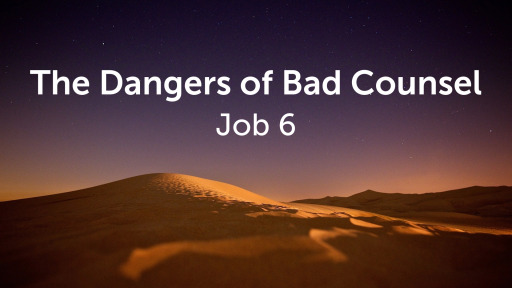The Danger of Bad Counsel

I. Bad Counsel May Result in Distrust
A. Bad counsel leaves the impression that you do not understand what the sufferer is going through
B. Bad counsel leads the sufferer to doubt future advice.
II. Bad Counsel May Cause Discouragement
A. The sufferer may return to their original struggle
B. The sufferer may reject the possibility of hope
III. Bad Advice May Seem Like Betrayal
A. A lack of kindness may feel like betrayal
Whereas Eliphaz is shocked that Job’s fear of God does not sustain him during his misfortunes (4:6), Job is distressed that the friends’ fear of Shaddai does not move them to support him through his troubles.
B. Betrayal then brings a deep disappointment
IV. Bad Counsel May Seem like Arrogance
A. An arrogant counselor seems to know it all
He asks them to teach him as wise teachers offering gentle instruction rather than as fierce lawyers arguing his guilt.
The approach they have taken has been argumentative; their intention is to prove him wrong. But his response reveals that their arguing does not accomplish anything.
Furthermore, Job wonders why the friends think they can reprove him with words when they count his words to be only wind. Even though he is despairing (nōʾāš), his words, and especially the feelings that give rise to them, are worthy of their careful attention, for in them they might discern how to respond to him instructively.
In ancient society when a party was indebted, the creditor might cast lots over his goods, or even his children, to select that which would be sold against the debt (cf. 2 K. 4:1). Job feels that this is the way his friends have treated him, a blameless man.
B. An arrogant counselor refuses to change his position
Job’s point is that since he can detect no wrong desire or deception on his part, he believes that the friends need to place some confidence in what he is saying.